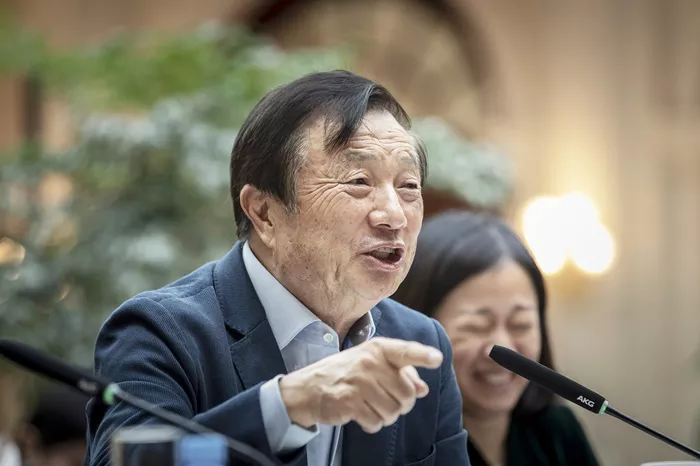During a recent interview at Huawei’s headquarters in Shenzhen, CEO Ren Zhengfei addressed pressing concerns about the company’s resilience amid external challenges. When asked about coping with U.S. sanctions, Ren responded pragmatically: “Thinking about difficulties is useless. We just focus on execution—step by step forward.” Regarding warnings about Huawei’s Ascend chips, he downplayed their current capabilities: “Many Chinese chip companies perform well; Huawei is just one of them. America overestimates our achievements—we’re still one generation behind in single-chip technology.”
Turning Constraints into Innovation
Ren identified Huawei’s unique approach to technological gaps: “We compensate through mathematical solutions for physical limitations, non-Moore methods for Moore’s Law, and cluster computing for single-chip shortcomings.” He emphasized that while software development faces no “chokehold,” China’s real challenge lies in education and talent pipeline development. “China will eventually have hundreds of operating systems supporting various industries,” he predicted.
Balancing Praise and Criticism
Addressing Huawei’s high public approval ratings, Ren expressed unexpected concern: “Excessive praise increases our pressure. Some criticism would keep us more alert.” He stressed the importance of constructive feedback: “Truthful criticism, even if harsh, deserves respect. Our focus must remain on self-improvement.”
The Long Game: Championing Basic Research
Ren passionately defended theoretical research investments: “Basic studies require 10-20 years minimum—they’re the roots supporting our technological tree.” He cited historical examples like Einstein’s relativity theory and Chinese scientist Luo Dengyi’s 1940s discovery of vitamin-rich wild berries that later became a luxury beverage. “Society must tolerate theoretical scientists’ isolation,” Ren urged, noting Huawei’s $18 billion annual R&D budget allocates $6 billion to non-evaluated basic research.
Honoring Scientific Legacy
Huawei’s “Huang Danian Tea House” initiative pays tribute to the late geophysicist whose mineral detection technology was repurposed by NATO. Ren explained: “This non-profit platform shares global scientific knowledge freely, collaborating with universities for strategic, non-commercial research.”
China’s Development Model and AI Prospects
Ren endorsed China’s socialist market economy for enabling massive infrastructure projects that prioritize social benefit over profit. On artificial intelligence, he projected: “AI might be humanity’s last major tech revolution. China’s advantages include hundreds of millions of youth, robust power grids, and advanced networks.” He referenced economist Friedman’s observation about China’s manufacturing prowess integrating AI.
Open Markets and Technological Sovereignty
Regarding chip solutions, Ren remained optimistic: “Cluster computing achieves comparable results to cutting-edge chips.” He advocated for legal standardization and market-driven approaches for private enterprises, concluding: “China’s unified market under Party leadership will ultimately break through all blockades toward national rejuvenation.”
Related topics:


